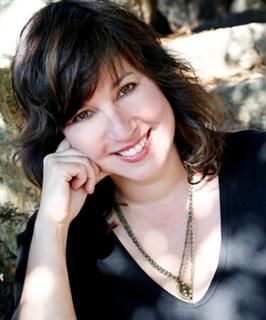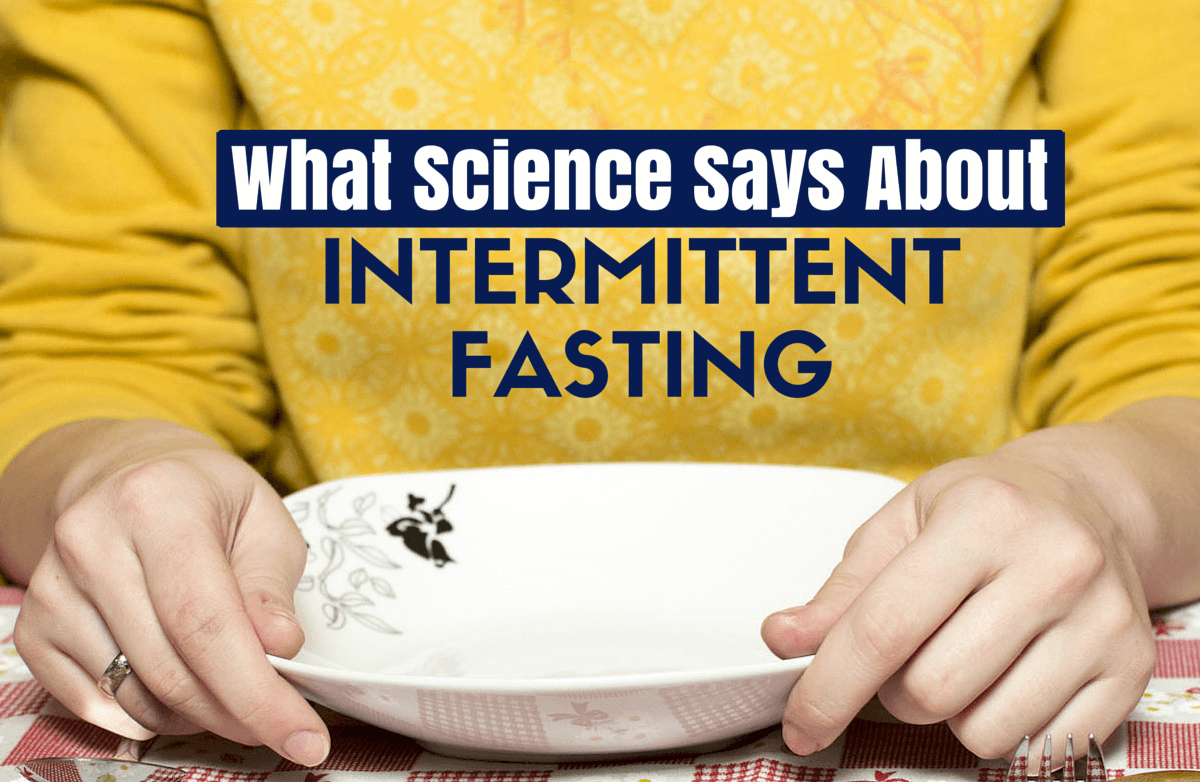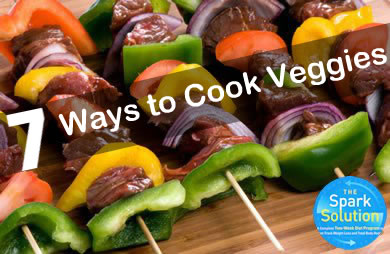|
Editor's Note: A few weeks ago, I read an article in Yoga Journal written by Dayna Macy. The recipes, fresh and healthy, with an attention to perfect portions and knowing when to say "enough," appealed to me. But what stood out more was the footnote that Macy had written a memoir about her liberation from a lifelong battle with food addiction. "Ravenous," I typed into the reading list I keep in my BlackBerry. A few days later I was on the phone with our editor at Hay House, going over some deadlines for the cookbook. I mentioned to her that I was looking for some new titles to feature on the blog. The first word out of her mouth: "Ravenous"! By week's end, I had connected with Dayna, fallen in love with the first few pages of her memoir (I finished it in one sitting over the weekend), and asked her if we could feature an excerpt on the dailySpark. Dayna, who's a huge fan of SparkPeople, eagerly agreed. Chapter 14, The Practice of Food, is among my favorite chapters in Ravenous: A Food Lover’s Journey from Obsession to Freedom. I hope you enjoy it as much as I did. By Dayna Macy "Am I fat?" I've never actually asked this question to another human being -- until now. I'm sitting in the office of Dr. Linda Bacon, a nutrition professor in the Biology Department at City College of San Francisco and author of Health at Every Size. I'm here because I embrace the message of her book: don't wait to live your life—the perfect one you imagine you'll live one day in your perfect body. Live it now. "Yes." I want to make sure I've heard correctly. "You just said, I'm fat, right?" She nods and says again, "yes." I'm silent. My hitherto unspoken weight hierarchy always began with thin, moved on to average, then on to chunky, then on to fat, and then finally, obese. I have always put myself in the chunky category, or its kinder, gentler cousin -- curvy. But never fat. Fat is another country, far away from where I live. After a pause she asks, "What does that mean to you?" "Well, what the f*** does that mean to you?" I counter. She remains calm. "Fat, you know," and here she grabs her nonexistent belly fat, "adipose tissue. Fat." That's it? "All you mean by fat is 'adipose tissue'?" "Yes," she says, "that's all I mean. "But I know it's a loaded term," she adds. You might say that. Bacon tells me that even though she's using the word fat in the most clinical sense, the truth is, labels are always arbitrary. One person's average is another person's fat is another person's curvy. So don't get hung up on the labels. "So tell me again what you mean by calling me fat?" I ask. "What I'm saying is you have adipose tissue I might not see on a thinner person." She pauses, and then adds, "And regardless of any of these labels, you radiate health and vibrancy. I think you're gorgeous," she concludes. I have to hand it to her; in our culture, fat and gorgeous are seldom used together in the same sentence. Maybe she's using the word fat clinically, but it still stings. What's more, she's right. And I know it. Couldn't I just accept this? Be fat and be fine with it? It's not that I yearn to look like a model. I'm heading toward 50 and I've had two children. I just know that at this point, for me, being fat doesn't feel good. My fat shows up in lots of ways: when I walk up hills and have to take frequent rests, when I need to buy the next size pants because my current ones don't close. If I'm going to change, I need to see clearly. Bacon's words may cut, but they're helping me do that. *** It's one thing to understand something in my mind, and another to understand it in my body. And the only way I've ever been able to move from my mind to my body is through attention and practice. I've been doing yoga for a long time, and thought I knew this already. I'm fat. My portions are out of balance. After all my explorations of different foods and my trips outward and inward, I still eat too much. Everything I've wanted in life I've had to practice at. Finding the right relationship with food is no different. I couldn't see that a year ago. Now it's in my face. And there's no room left for me to dodge it. There's a practice for each of us. As a cook, I've always preferred tossing and improvising to carefully measuring out ingredients. As a person, I've always felt it was my right to eat as much as I want, whenever I want. Now, my practice will be measuring my food. *** This is a portion? I'm weighing out three ounces of salmon. It's about the size of my palm -- excluding my fingers. I'm cooking dinner, and while Scott makes tortellini for the boys, I'm making baked salmon topped with lemon and dill for myself, along with brown rice and heaps of sautéed kale. I measure out a cup of rice, which, by the way, is about the size of my clenched fist. The three ounces of salmon seems small compared to what I'm used to, but what I'm used was too much. As my family chows down their tortellini (topped with excellent parmesan cheese from The Cheese Board), I eat my wild salmon. It's fresh, and the oily flesh is satisfying. I eat my cup of nutty brown rice along with my kale. When I'm done, I'm neither hungry nor full. I'm satisfied, and that is unfamiliar. My routines are changing now. When I make a salad, I take five olives out of the jar, and add olive oil by the teaspoon, instead of pouring it on. I sauté greens and top them with four ounces of grilled chicken. I take one square of chocolate, not the entire bar. I treat myself to a small piece of Acme baguette with an ounce of triple cream Cambozola cheese, not the wedge. And I still eat the most delicious yogurt in the world, from Straus Creamery, but now I have a half a cup, not a heaping bowl. And I follow the advice of Linda Prout, a nutritionist based in Eugene, Oregon, whom I interviewed for a magazine piece many years ago. I add Celtic sea salt to my food, because it's full of minerals such as iron, magnesium and potassium. I eat small, oily fish, like sardines, herring, and anchovies because of their high levels of Omega-3 oils, and make sure to eat lots of cooked vegetables, especially leafy greens. I not only measure my food, I also write down everything I eat. It is the only way I make sure I don't trick myself, and that I'm accountable. I've stopped fantasizing I can find balance without paying close attention to quantity. Maybe one day I won't have to measure and record, because understanding what a reasonable portion is will be second nature. But not now, and maybe not for a long time. I pay attention to words, because words have power. I don't say I'm on a diet; rather, I think of measuring as a practice. Just like going to my yoga mat is practice. Practice is what you do every day to achieve what you desire. To write a book, you practice writing. You sit down each day and you do the work. It is no different with losing weight. One ounce of triple cream Cambozola may be a small amount, but an ounce is an ounce. A cup of rice is a cup of rice. This is what the singer in my dream meant, when she said, “The secret is, there is no secret.” A portion is a portion, and practice is practice. There are no shortcuts. Measuring, by its nature, requires me to pay attention to every portion. Measuring forms a container for my longings and boundaries for my lust. Without boundaries, I cannot find balance. Without limits, I cannot hope to be free. And I begin to lose weight -- five pounds, ten pounds, twenty, then more. I start buying clothes one size, then another size smaller. Even at this stage of my journey, I can see that being in a lighter body is complicated. Weight can obscure many things, including lust, sadness, loneliness, anxiety, and anger. As I lose weight and my buffer loosens, I am forced to grapple with these states more directly. I practice patience -- it takes the body and the mind time to learn to move through the world in a different way. I know that my practice of food measurement is hardly an uncommon approach. I compare notes with friends, and I visit some of the different groups that support people who are trying to eat more carefully. I go to a Weight Watchers meeting and I hear a 300-pound woman start to cry, saying she can't bear to go to her high school reunion because she's "larger than a whale." I sit in an Overeaters Anonymous meeting and hear a 120-pound woman cry about her imperfect body. She ate chocolate the other week and, that night, rammed her stomach into a banister to try to force the food up. It is a revelation to me that a 120-pound person and a 300-pound person can each be similarly sad about their bodies. The thinner person may look like her act is more together, but pain is pain. Regardless of the number on the scale, few of us are truly happy and at home in the skin we're in. In our culture, the number on the scale enforces a cruel hierarchy. Weight separates the worthy from the unworthy. But the truth is, it's difficult to be in a body, period. Witnessing this in myself and in others, I've begun to see through the delusion so many of us share -- that when we reach a particular weight, we will automatically be happy. Now I have an answer to the question that yoga teacher Patricia Walden asked me a decade ago. "Why are you in this body? What does it have to teach you?" I’ve learned that my mind and my body are equals, that they are completely entwined, and that each needs the other’s intelligence and wisdom to be whole. And I’ve learned that consciousness may be the beginning of transformation, but consciousness in action continues it. My friend Timothy told me that it is possible to achieve absolute transformation very slowly. I believe him. So I'm taking the long view. I have no goal for my weight. I spent so many years out of balance that it's hubris to believe achieving a number will mean I've found it. I am curvy by design and praise that! I’m not trying to look like anyone else; I’m trying to become more myself. I am in a bardo state, as Bo Forbes earlier described. I'm in the process of letting go of old patterns, with new ones starting to emerge. I'm not sure where I'll land. But I keep measuring my food, and slowly, I’m waking up, meeting myself as I am, not who I wish I was. I do my practice. I keep showing up.  Excerpted from Ravenous: A Food Lover's Journey from Obsession to Freedom by Dayna Macy. Published by Hay House. We'll be giving away copies of Dayna's book later this month--details coming soon! Measuring portions and journaling her food helped Dayna lose 30 pounds. What tools have you used to help you lose weight? Being called "fat" was Dayna's "A-ha" moment. What was yours? How does your story relate to hers? |
More From SparkPeople |

.jpg)











.jpg)
